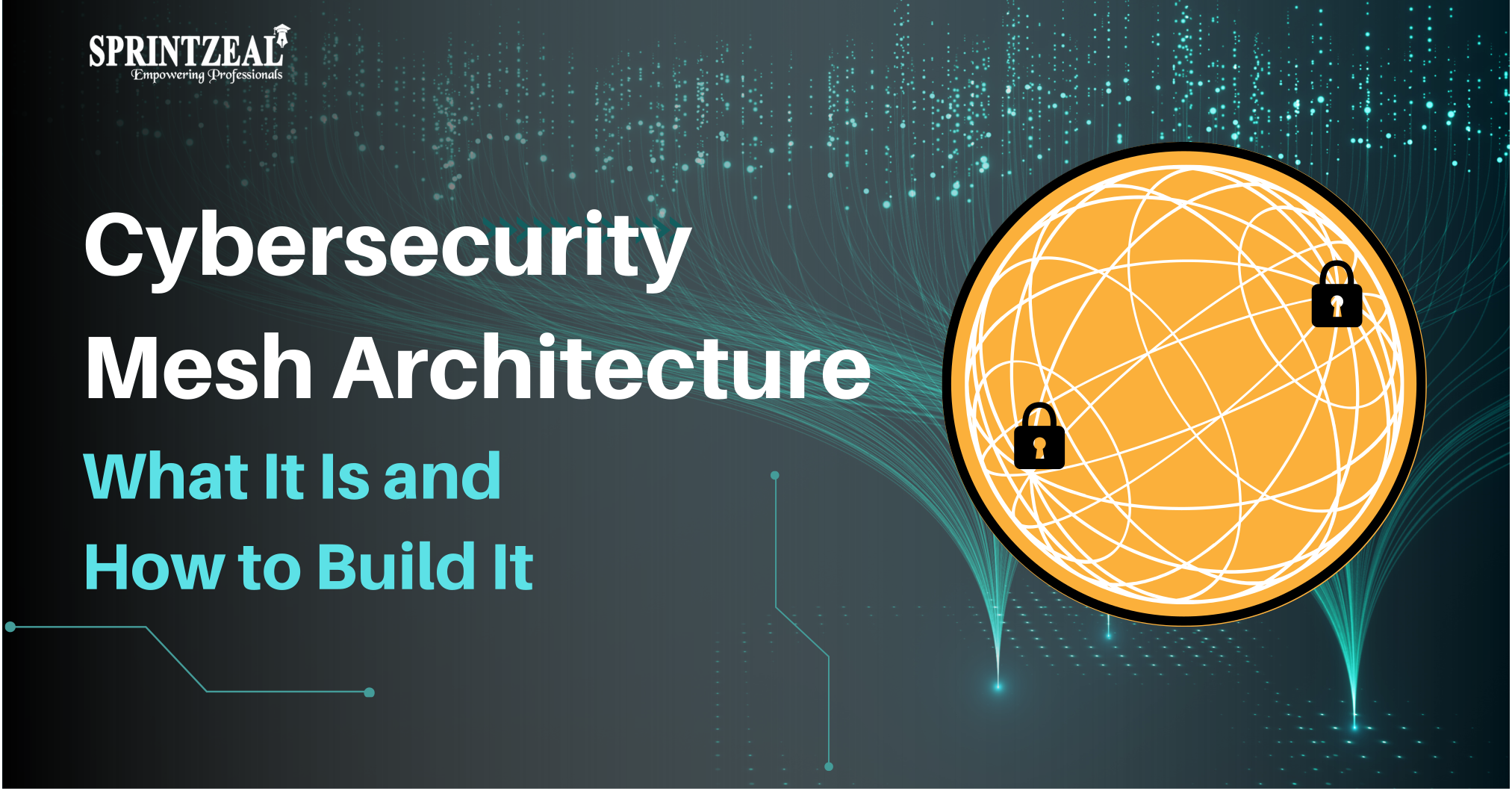Job Prospects for DoD Certified Professionals: A Pathway to Success in cybersecurity
-
 By Niharika Chaurasia
By Niharika Chaurasia - Published on Jul 4 2023

Table of Contents
Introduction
The demand for qualified professionals in the defense industry is rising significantly in this quickly developing IT sector, where technology is essential for national security.
Any individual aspiring for greater professional heights must get certifications from the Department of Defense (DoD). This promotes career success and opens up a wide choice of intriguing professions for people.
As per the industry reports, the defense industry is projected to witness significant growth in the coming years, with a projected increase of 8% in employment opportunities.
Also, professionals holding DoD certification are in high demand, with a 31% projected growth rate in cybersecurity from 2019 to 2029. These statistics highlight the exceptional job prospects and stability that come with DoD certification.
In this blog, we will explore the immense value of DoD certification, delve into various job roles and specializations, and uncover the salary potential based on location, experience level, and job role. Get ready to discover the endless opportunities and lucrative rewards that await those who hold DoD certification.
Skills and Qualifications Required
Here's an example of presenting the job roles, required skills, and qualifications in a tabular format:
|
Job Role |
Required Skills |
Qualifications |
|
Information Security Analyst |
Cybersecurity, network security, risk assessment |
Bachelor's degree in IT, Computer Science, or related field; Certification-CISSP, CISM, or CompTIA Security+ |
|
Security Engineer |
Network security, vulnerability assessment, firewall management |
Bachelor's degree in Computer Science, Information Technology, or related field; Certifications-CEH, CISSP, or CCSP |
|
Incident Responder |
Incident response, digital forensics, threat analysis |
Bachelor's degree in Cybersecurity, Computer Science, or related field; Certifications-GCIH, GCFA, or CHFI |
|
Security Architect |
Security architecture design, risk management, cloud security |
Bachelor's degree in Information Security, Computer Engineering, or related field; Certifications-CISSP, CISM, or TOGAF |
|
Compliance Specialist |
Regulatory compliance, policy development, auditing |
Bachelor's degree in Business, IT, or related field; Certifications-CISA, CISSP, or CRISC |
|
Penetration Tester |
Penetration testing, ethical hacking, vulnerability assessment |
Bachelor's degree in Cybersecurity, IT, or related field; Certifications-OSCP, CEH, or GIAC Penetration Tester |
|
Cybersecurity Consultant |
Security consulting, risk assessment, incident response |
Bachelor's degree in Cybersecurity, IT, or related field; Certifications-CISSP, CISM, or ISO 27001 Lead Auditor |
|
Security Operations Center (SOC) Analyst |
Intrusion detection, threat hunting, log analysis |
Bachelor's degree in Cybersecurity, IT, or related field; Certifications-CompTIA Security+, GCIA, or GCIH |
|
Risk Analyst |
Risk assessment, vulnerability management, compliance |
Bachelor's degree in Cybersecurity, Risk Management, or related field; Certifications-CRISC, CISA, or ISO 31000 |
|
Cybersecurity Manager |
Security leadership, strategic planning, team management |
Bachelor's degree in Cybersecurity, IT, or related field; relevant work experience; Certifications-CISSP, CISM, or PMP |
This is an illustrative list of job roles in the defense industry for DoD certified professionals. The actual job titles, required skills, and qualifications may vary based on the organization and specific job requirements.
Job Roles for DoD Certified Professionals
DoD certification opens doors to a wide range of job roles in the defense industry. Here, we will discuss some of the well-known positions offered to DoD certified professionals and will understand their responsibilities and contributions.

Information Security Analyst
The main responsibility of Information Security Analyst is to protect sensitive information and systems from cyber threats.
As information security analyst your role may involve handling vulnerability assessments, implementing security measures, and responding to security incidents.
Network Administrator
The role or network administrator includes managing and maintaining organistions computer networks. You will oversee network operations, troubleshoot network issues, and ensure network security measures are in place.
Systems Engineer
Systems Engineers play a crucial role in designing, implementing, and maintaining computer systems for defense organizations. You will work on developing secure and efficient systems, integrating hardware and software components, and ensuring system reliability.
Cybersecurity Consultant
The expert advice and guidance to organizations on their cybersecurity strategies is pr[ovided by Cybersecurity Consultan. You may perform risk assessments, develop security policies and procedures, and assist in incident response and recovery.
Security Operations Center (SOC) Analyst
SOC Analysts monitor and analyze security events and incidents in real-time. You will investigate and respond to security alerts, perform threat hunting activities, and contribute to the continuous improvement of security operations.
Penetration Tester
Penetration Testers assess the security of computer systems and networks by simulating real-world attacks. You will identify vulnerabilities and weaknesses, conduct ethical hacking activities, and provide recommendations for improving security posture.
Security Engineer
Security Engineers focus on designing and implementing secure systems and infrastructure. You will be involved in creating security architectures, implementing security controls, and ensuring compliance with industry standards and regulations.
Incident Response Manager
Incident Response Managers coordinate and lead response efforts in the event of a security incident or breach. You will develop incident response plans, coordinate with various teams, and oversee the containment, eradication, and recovery processes.
Security Auditor
Security Auditors assess the effectiveness of an organization's security controls and procedures. You will conduct audits, identify compliance gaps, and provide recommendations for improving security practices.
Cryptographer
Cryptographers concentrate in designing and implementing cryptographic algorithms and protocols to secure data and communications. Your expertise will be crucial in ensuring the confidentiality and integrity of sensitive information.
These job roles offer exciting opportunities to contribute to the defense industry and protect critical information. Each role requires specific skills, knowledge, and certifications, including DoD approved certifications, to demonstrate proficiency and meet industry standards.
Salary Prospects for DoD Certified Professionals
DoD certified professionals earn competitive salaries based on their expertise, experience, and job role. Factors like location and years of experience also effect salary prospects. Let's explore some job roles and their salary ranges.

Information Security Analyst
The average annual salary for information security analysts in the United States can range from $75,000 to $120,000, with experienced professionals and those with advanced certifications often earning over $150,000.
Systems Engineer
The average annual in the defense industry is around $85,000 to $130,000 for a system engineer, with higher salaries for those with wide experience and expertise in specialized areas such as cybersecurity and defense systems.
Cybersecurity Consultant
Factors such as experience, certifications, and size of consulting firm put great impact on salary range of cybersecurity consultant. Professionals in this role can expect to earn between $80,000 and $150,000 per year, with the potential for higher salaries in senior positions.
Network Administrator
The factors that impact your real salary could typically depend on your location, the industry you work in, and the complexity of the network environment you are in charge of maintaining. Network administrators often make between $60,000 and $100,000 per year.
Security Operations Center (SOC) Analyst
The SOC analysts at entry-level usually earn annual salaries between $50,000 and $80,000. Though, as these professionals gain more experience and expertise, their earning potential increases significantly. Senior SOC Analysts can command salaries exceeding $120,000 or even higher. This demonstrates the rewarding career path and growth opportunities within the field of cybersecurity.
Penetration Tester
Due to the high demand and specialized nature of their work, Information Security Analysts command competitive salaries. Entry-level professionals can expect salaries starting around $70,000, while experienced individuals with advanced certifications can earn upwards of $150,000 or more.
Security Engineer
Due to the critical role in designing and implementing secure systems competitive salaries. Salaries typically range from $90,000 to $140,000 per year, with variations based on experience, location, and industry.
Earning potential for DoD certified professionals varies based on location, industry, and experience. Advancing certifications and higher-level roles can lead to increased earning potential.
Top DoD Approved certification courses
Here are some top DoD approved certification courses:
-CompTIA Security+
This certification covers essential skills and knowledge required for entry-level cybersecurity roles.
-CISSP (Certified Information Systems Security Professional)
CISSP is a globally recognized certification that demonstrates advanced knowledge in designing, implementing, and managing cybersecurity programs.
-CEH (Certified Ethical Hacker)
CEH certification focuses on ethical hacking techniques and tools used by security professionals to identify vulnerabilities and secure computer systems.
-CISM (Certified Information Security Manager)
CISM is designed for professionals responsible for managing, designing, and overseeing an enterprise's information security program.
-CISA (Certified Information Systems Auditor)
CISA certification is ideal for professionals involved in auditing, monitoring, and assessing information systems and business processes.
-CCSP (Certified Cloud Security Professional)
CCSP certification focuses on cloud security architecture, design, and operations.
-CSSLP (Certified Secure Software Lifecycle Professional)
CSSLP certification validates expertise in developing secure software applications.
-OSCP (Offensive Security Certified Professional)
OSCP certification is highly regarded in the cybersecurity industry and emphasizes hands-on penetration testing skills.
Get the detailed information about DoD approved certification in list of DoD approved certification
These certifications cover a variety of cybersecurity skills and are highly considered in the industry. They can boost job prospects for DoD certified professionals and open doors to exciting career opportunities.
Conclusion
DoD certification unlocks a world of job prospects in the defense industry, offering competitive salaries and chances for career growth. As organizations identify the importance of cybersecurity, the demand for skilled professionals continues to rise.
Embrace the potential that DoD certification brings and embark on a rewarding career path that makes a significant impact in the defense sector.
Whether you're just starting out or looking to advance your existing knowledge, our expert instructors and practical training approach will equip you with the tools to succeed.
Visit Sprintzeal cybersecurity course page and browse our course offerings and take the first step towards a successful career in cybersecurity. Contact us for more information and let us help you achieve your professional goals.
Subscribe to our Newsletters
Popular Programs
CISSP® - Certified Information System Security Professional
Live Virtual Training
- 4.1 (964 + Ratings)
- 70k + Learners
CISM® - Certified Information Security Manager
Live Virtual Training
- 4.3 (200 + Ratings)
- 2k + Learners
CCSP® - Certified Cloud Security Professional
Live Virtual Training
- 4.4 (964 + Ratings)
- 60k + Learners
Trending Posts
Information Assurance Careers - Exploring Career Paths
Last updated on May 25 2023
Data Leak - What is it, Prevention and Solutions
Last updated on Jun 29 2023
A Comprehensive Guide to Building Risk-Based Internal Audit Plan
Last updated on Dec 19 2023
Cybersecurity Mesh Architecture: What It Is and How to Build It
Last updated on Jun 1 2023
ISACA Certifications List 2024
Last updated on Jan 11 2023
The Future of Online Security: Trends to Watch in 2025
Last updated on Feb 17 2025
Categories
- Agile Management 55
- AI and Machine Learning 44
- Big Data 53
- Business Management 52
- Cloud Computing 44
- Digital Marketing 56
- Information Security 8
- IT Hardware and Networking 17
- IT Security 103
- IT Service Management 29
- Leadership and Management 1
- Microsoft Program 2
- Other 45
- Programming Language 31
- Project Management 162
- Quality Management 75
- Risk Management 8
- Workplace Skill Building 2
Trending Now
Which Certification is best for Cybersecurity?
ebookTop 5 Compelling Reasons To Get A Cyber Security Certification
ebookHow to Become IT Security Expert with CISSP Certification
ebookTop 20 Reasons You Should Get a CISSP Certification
ebookCISM certification cost and career benefits
ebookWhat is CISSP? – Everything about CISSP Certification Explained
ebookPass CISSP Exam - How to Clear CISSP Exam in First Attempt 2024 (UPDATED)
ebookCISSP Certification – Top 25 Career Benefits in 2024
ebookCybersecurity – Everything You Need to Know About it
ebookCybersecurity Strategy: Building a Strong Defense for Business
ebookCyber Attack Statistics and Trends to Know in 2024
ebookUpdated Google Certification Training Course list 2024
ArticleWhich Cybersecurity Certification Should I Get First?
ebookCysa+ certification – Should you get it?
ebookList of Top Security Certifications
ArticleEasiest Security Certification to Get
ebookCybersecurity Fundamentals Explained
ebookISACA Certifications List 2024
ebookCareer Benefits of CISM Certification in 2024
ArticleList of Top Information Security Certifications in 2024
ebookCISM certification cost details
ArticleSafeguarding Digital Domain: 10 Most Common Cybercrimes
ebookMitigate the Cyber-Attack Risks with Best Cyber Security Protocols
ebookCybersecurity Interview Questions and Answers 2024
ebookData Leak - What is it, Prevention and Solutions
ebookTop Cybersecurity Software Tools In 2024
ebookWhat is Cryptography - A Comprehensive Guide
ebookInformation Security Analyst - Career, Job Role, and Top Certifications
ebookCyber Security Analyst - How to Become, Job Demand and Top Certifications
ebookIBM Data Breach: Is IBM Really Breach-Proof?
ArticleWhat is the Department of Defense (DoD) Directive 8140
ebookInformation Assurance Model in Cybersecurity
ebookWhat is Data Security - Types, Strategy, Compliance and Regulations
ebookData loss Prevention in Cyber Security Explained
ebookCybersecurity Controls Explained in Detail
ebookCybersecurity Framework - A Complete Guide
ebookCybersecurity Career Paths Guide
ebookFuture of Cybersecurity - Trends and Scope
ebookScope for Cybersecurity in 2024 - Update for 2024
ebookCyber Security Careers and Outlook - 2024 Guide
ebook5 Cybersecurity Predictions in 2024 - Trends and Challenges
ebookEthical Hacking Career: A Career Guide for Ethical Hacker
ebookApplication Security: All You Need To Know
ebookCybersecurity Roles - Top Roles and Skills to Consider in 2024
ebookHow to Get Cyber Essentials Certified
ebookTop 10 Cyber Security Threats and How to Prevent Them
ebookTop 10 Network Scanning Tools of 2025
ebookCyber Incident Response Plan: A Comprehensive Guide
ebookInformation Assurance Careers - Exploring Career Paths
ebookCybersecurity Mesh Architecture: What It Is and How to Build It
ebookWhat is Threat Modeling? Methodologies, Types, and Steps
ebookWhat is Digital Forensics? Types, Process & Challenges
ebookRecent Cyber Attacks & Data Breaches in 2024
ebookHow to Become an Information Security Analyst Salary, Skills, and More
ArticleList of Top Department of Defense (DoD) Approved 8570 Certification Courses
ebookTop 5 Ransomware Attacks to Watch Out for in 2024
ebook10 Biggest Data Breaches of the 21st Century
ebookWhat is a Cybersecurity Incident?-Types, Impact, Response Process and More
ebookCyber Security Planning - A Detailed Guide for Risk Mitigation
ebookWhat is Cybercrime? Exploring Types, Examples, and Prevention
ebookCybercrime Impacts On Business: 6 Major Effects
ebook5 Types of Cyber Attacks You Should Be Aware of in 2024
ebookCloud Cyber Attacks: Causes, Types, Prevention and Protection
ebookCloud Malware: Types of Attacks and Security Measure
ebookList Of Top Cybersecurity Threats In 2024
ebookRisk-based Audit Planning Guide for Beginners
ebookDemystifying Cloud-Based Cyber Attacks: A Comprehensive Guide
ebookPrevent Cyber Attacks: Strategies to Protect Your Digital Assets
ebookList of Top 10 Cybersecurity Careers in 2024
ebookTop 20 Cybersecurity Trends to Watch Out for in 2024
ArticleHow to Become Cybersecurity Engineer
ArticleUnderstanding Risk assessment in audit planning
ArticleFundamentals of Risk-Based Auditing: A Strategic Framework
ArticleTop 8 Types of Cybersecurity Jobs and Salary Insights
ArticleA Comprehensive Guide to Building Risk-Based Internal Audit Plan
ArticleRisk-Based Internal Auditing Approaches: 7 Steps to Explore
ArticleCompTIA Security+ 601 vs. 701: Understanding Key Differences
ArticleWhy and How to Perform a Risk-Based Internal Audit
ArticleRisk-Based Auditing Techniques Explained
ebookEthical Hacking Tools: Best Ones for Cybersecurity in 2025
ArticleEvolving Cyber Threats and Vulnerabilities in Cybersecurity Risk Management
ArticleWhat Is Secure Access Service Edge (SASE)?
ArticleHow to Stay Cyber-Secure in Work and Personal Life (Tips and Practices)
ArticleTarget Cyber Attack: Key Lessons from the 2013 Data Breach
ArticleLinkedIn User Data Protection Explained
ArticleCanva Data Breach: Best Lessons for Users and Businesses
ArticleHow Did Capital One Respond to Their Major Cyber Incident?
ArticleWhat Innovative Measures Did Reddit Take to Protect User Data?
ArticleHow Does Slack Respond to Security Challenges?
ArticleTwitch Data Breach: Response, Changes, and Key Takeaways
ArticleGuess What Google Did When a Employee Breached Their Firmware
ArticleWhat Happened When Cisco Faced a Cyber Incident?
ArticleWhat Sony Did to Rebuild Trust After a Major Cyberattack
ArticleHow to Handle a Data Breach? Learn from Microsoft!
ArticleCybersecurity Mesh: A New Approach for Security Design
ArticleHow Target Turned a Cyber Crisis into a Lesson for All
ArticleDropbox Data Breach: What Companies Can Learn from It
ArticleHow JPMorgan Chase Strengthened Security After Facing Cyber Threats
ArticleThe Future of Online Security: Trends to Watch in 2025
ArticleLatest Trends in CyberSecurity
ArticleTop 12 Cyber Security Apprenticeships with High Earning Potential in 2025
ArticleEnhancing Safety and Competence in Today's Workplace
Article
















